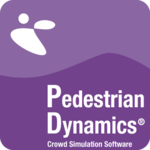Description

FieldView

Arena Simulation
Comprehensive Overview: FieldView vs Arena Simulation
FieldView and Arena Simulation are two distinct software products catering to different domains and needs, each with its own primary functions, target markets, and unique features.
a) Primary Functions and Target Markets:
FieldView:
-
Primary Functions:
- FieldView is an advanced computational fluid dynamics (CFD) post-processing and visualization tool.
- It is used to interpret, visualize, and analyze simulation data resulting from fluid dynamic simulations.
- Provides tools for generating high-quality visualizations, comprehensive reports, and in-depth analysis of CFD results.
- Supports handling large datasets efficiently with features like parallel processing.
-
Target Markets:
- Primarily targets engineers and analysts in fields like aerospace, automotive, energy, and manufacturing.
- Widely used by organizations conducting fluid dynamics research and development.
- Industries focusing on performance optimization and quality assurance of fluid flow designs.
Arena Simulation:
-
Primary Functions:
- Arena Simulation is a discrete event simulation software used to model the operation of complex systems and processes.
- It facilitates the design, analysis, and optimization of systems, helping users to predict process performance.
- Users can simulate various scenarios to identify bottlenecks, optimize resources, and enhance efficiency.
-
Target Markets:
- Targets industries like manufacturing, logistics, healthcare, and service operations.
- Used by operations researchers, industrial engineers, and process improvement specialists.
- Key applications include supply chain management, production system design, and healthcare process optimization.
b) Market Share and User Base:
-
FieldView:
- As a niche product focusing on CFD visualization, FieldView holds a strong position in specialized markets like aerospace and automotive.
- Compared to broader simulation tools, its user base is smaller but highly focused on CFD analysts and researchers.
-
Arena Simulation:
- Arena is one of the older and more established discrete event simulation tools, with a substantial user base within its target industries.
- Its market presence is significant in manufacturing and service industries.
While exact market share numbers can fluctuate and may not be publicly detailed, Arena Simulation typically enjoys broader adoption due to its applicability to a wide range of industries as opposed to the more specialized FieldView.
c) Key Differentiating Factors:
-
Domain Specificity:
- FieldView is specifically designed for CFD visualization, making it highly specialized and tailored to fluid dynamics analysis.
- Arena Simulation offers a general-purpose simulation environment for modeling discrete events and process flows in various industries.
-
User Interface and Usability:
- FieldView focuses on providing detailed visual representations, often requiring a more technical background in CFD for effective usage.
- Arena Simulation, while also technical, is more centered around user-friendly process modeling tools like flowcharts and scenarios that appeal to a broader range of users, including those in non-engineering roles.
-
Data Handling and Performance:
- FieldView excels in handling large CFD datasets, offering advanced features for rendering and parallel processing.
- Arena Simulation emphasizes operational efficiency and process optimization, focusing on simulation accuracy and process improvement analytics.
-
Industry Application:
- FieldView is almost exclusively used in settings where CFD analysis is a core component of R&D.
- Arena Simulation finds applications across a variety of industries needing process optimization and efficiency improvement, making it more versatile in market applications.
In conclusion, while both FieldView and Arena Simulation are used in simulation and analysis tasks, FieldView serves a highly specialized CFD market, whereas Arena provides broader application flexibility across multiple industries requiring discrete event simulation.
Contact Info

Year founded :
Not Available
Not Available
Not Available
Not Available
Not Available

Year founded :
Not Available
+1 412-375-4700
Not Available
United States
Not Available
Feature Similarity Breakdown: FieldView, Arena Simulation
FieldView and Arena Simulation are both software tools used for modeling and analysis, but they are applied in different fields and developed for different types of simulations. Here’s a breakdown of their features and considerations regarding their interfaces and unique aspects:
a) Core Features in Common
-
Visualization Capabilities:
- FieldView: Primarily used for visualizing and analyzing computational fluid dynamics (CFD) data.
- Arena Simulation: Utilized for visualizing discrete event simulations.
-
Data Import/Export:
- Both tools support the import and export of data to and from various file formats, enabling integration with other systems and data sources.
-
Simulation Management:
- Facilitate the handling of large datasets and the management of simulation processes to ensure efficient operation and performance.
b) User Interface Comparison
-
FieldView:
- Interface Focus: Designed with extensive visualization tools tailored to CFD analysis. Offers 3D visualization and various plotting options.
- Usability: Focused on graphical representation of fluid flow data, making it highly specialized for users needing detailed CFD analysis.
- Learning Curve: Can be steep for users unfamiliar with CFD concepts but offers extensive customization and powerful visualization.
-
Arena Simulation:
- Interface Focus: More process-oriented, featuring flowchart-based modeling where users can design process flows and simulate operations.
- Usability: Relatively intuitive with drag-and-drop functionality for building simulation models.
- Learning Curve: Easier for beginners in simulation modeling, particularly those interested in logistics, manufacturing, or service operations.
c) Unique Features
-
FieldView:
- CFD Specific Tools: Provides tools specifically for fluid dynamics such as flow field analysis, vector and streamline visualization, and specialized post-processing capabilities.
- Performance: Optimized for handling very large CFD datasets efficiently.
- Scripting & Automation: Supports scripting (e.g., Python) to automate repetitive tasks and customize workflows.
-
Arena Simulation:
- Discrete Event Modeling: Specifically designed for discrete event system simulation, allowing for detailed analysis of processes over time.
- Integration with Analytics: Can connect with other Rockwell Automation tools for extended capabilities in process analysis and optimization.
- Library of Modules: Features pre-built modules for common operations like queues, servers, and decision points, aiding rapid model development.
Conclusion
While FieldView and Arena Simulation share some general features related to data handling and visualization, they cater to different markets and tasks. FieldView is distinct in its specialized CFD focus with highly advanced visualization and analysis tools unique to fluid dynamics. On the other hand, Arena Simulation shines in its discrete event simulation capabilities with an intuitive interface suited for process-oriented operations and broader business applications. The choice between them depends largely on the specific needs of CFD analysis versus discrete event process simulation in industries like manufacturing, logistics, or services.
Features

Not Available

Not Available
Best Fit Use Cases: FieldView, Arena Simulation
Certainly! FieldView and Arena Simulation serve distinct purposes and cater to different types of businesses or projects across industry verticals.
FieldView
FieldView is a data-driven platform primarily geared towards agriculture and farming. It offers detailed insights and management solutions tailored for agricultural practices.
a) Best Fit Use Cases for FieldView:
-
Agricultural Operations: FieldView is designed specifically for farmers and agricultural managers. It provides tools for monitoring field conditions, crop performance, and weather data to optimize yields.
-
Precision Farming: For businesses focused on precision agriculture, FieldView offers advanced analytics that help in understanding variability in fields, tailoring interventions, and improving resource efficiency.
-
Crop Management Companies: Enterprises involved in seed production, crop nutrition, and protection benefit from FieldView’s ability to track and analyze field data to support decision-making processes.
-
Agri-Tech Startups: Companies developing technology solutions for agriculture can use FieldView’s platform to test and improve innovations with real-time data analysis.
Arena Simulation
Arena Simulation by Rockwell Automation is a powerful discrete event simulation software used in a variety of industries to model complex processes and systems.
b) Best Fit Use Cases for Arena Simulation:
-
Manufacturing: Arena Simulation is frequently used in manufacturing to model production lines, optimize plant layouts, and improve process efficiencies.
-
Supply Chain and Logistics: It helps businesses model and analyze supply chain processes, warehouse operations, and logistics to enhance efficiency and reduce costs.
-
Healthcare: Hospitals and healthcare facilities use Arena Simulation to streamline patient flow, manage resource allocation, and improve service delivery.
-
Customer Service and Retail: Businesses in the service industry use it to analyze wait times, service processes, and customer interactions to enhance service quality.
-
Transportation: Arena assists in modeling transportation systems, including traffic flow and public transit operations, to improve planning and operations.
Industry Verticals and Company Sizes
FieldView:
- Industry Verticals: FieldView is predominantly focused on the agriculture industry. It serves crop producers, agronomists, and agricultural service providers.
- Company Size: FieldView caters to both small-scale farms and large agricultural enterprises. It provides scalable solutions that can be adapted based on the size of the operation and the complexity of the farming needs.
Arena Simulation:
- Industry Verticals: Arena Simulation is versatile, catering to industries such as manufacturing, healthcare, logistics, retail, and service operations, among others.
- Company Size: Arena is suitable for a variety of companies, from small businesses focusing on specific supply chain challenges to large corporations needing comprehensive process simulations.
In summary, FieldView is tailored for the agriculture sector, providing insights for optimizing farming practices, whereas Arena Simulation is a more general-purpose modeling tool used across diverse industries to simulate and improve operational processes. Both solutions offer their own strengths and are designed to address the unique needs of their respective target audiences and industry applications.
Pricing

Pricing Not Available

Pricing Not Available
Metrics History
Metrics History
Comparing undefined across companies
Conclusion & Final Verdict: FieldView vs Arena Simulation
Conclusion and Final Verdict: FieldView vs. Arena Simulation
a) Best Overall Value
Determining the best overall value between FieldView and Arena Simulation depends heavily on the specific use case and the needs of the user or organization. Generally, Arena Simulation tends to offer better value for users who are focused on discrete event simulation, particularly in manufacturing, logistics, and business process optimization due to its depth of features and industry-specific functionalities. FieldView, on the other hand, might provide better value for users who are engaged in CFD (Computational Fluid Dynamics) analysis, thanks to its strong data visualization capabilities and user-friendly interface.
b) Pros and Cons
FieldView:
Pros:
- Advanced Visualization Tools: FieldView is renowned for its powerful and high-quality visualization capabilities, which are essential for interpreting complex CFD data.
- User-Friendly Interface: It has a relatively intuitive and easy-to-navigate interface, making it accessible for both beginners and experienced users.
- Performance: Efficient handling of large datasets, which is critical for industries like aerospace and automotive that rely heavily on CFD.
Cons:
- Narrow Focus: It is primarily focused on CFD, limiting its applicability outside of fluid dynamics.
- Cost: Depending on the features and licensing options, it may be expensive, especially for smaller organizations or academic institutions.
Arena Simulation:
Pros:
- Versatility in Industry Applications: Ideal for a wide range of industries, especially in logistics, manufacturing, and service operations due to its robust discrete event simulation capabilities.
- Comprehensive Model Support: Offers extensive support for modeling complex systems and processes.
- Integration and Compatibility: Works well with various data sources and can be integrated into larger enterprise systems.
Cons:
- Steeper Learning Curve: Arena can be complex to learn for new users, especially those without a strong background in simulation.
- Resource Intensive: Models can be resource-heavy, requiring substantial computing power for large-scale simulations.
c) Specific Recommendations
Users trying to decide between FieldView and Arena Simulation should primarily consider the nature of their project:
-
Identify Your Focus Area:
- If your primary need is around Computational Fluid Dynamics and advanced data visualization, FieldView is the clear choice.
- For projects involving discrete event simulation in manufacturing processes, business operations, or logistics, Arena Simulation is more appropriate.
-
Assess Learning and Development Capacity:
- Consider the learning curve and the availability of resources. Choose FieldView for a faster setup if your team lacks simulation expertise. Opt for Arena Simulation if you can invest time in training and have complex processes to simulate.
-
Budget Considerations:
- Analyze the cost implications of each software, including licenses, hardware requirements, and training. Ensure the selected tool aligns with your financial resources and provides a good return on investment.
In conclusion, both FieldView and Arena Simulation are powerful in their own domains. The choice will largely depend on your specific application needs and resources. Users should weigh the tool's features against their project requirements and long-term strategic goals to determine which software will deliver the best value.
Add to compare
Add similar companies



